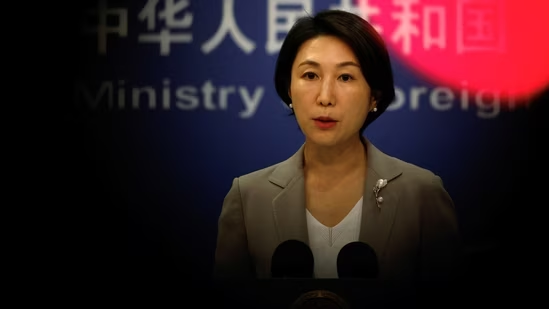China flags ‘security incidents’ concerning Apple’s iPhones
China flagged security problems with iPhones while saying it isn’t barring purchases, the government’s first comments on the topic after news reports that authorities are moving to restrict the use of Apple Inc. products in sensitive departments and state-owned companies.

“We noticed that there have been many media reports about security incidents concerning Apple phones,” Chinese Foreign Ministry spokeswoman Mao Ning told a regular press briefing in Beijing on Wednesday, without elaborating.
China plans to expand a ban on the use of iPhones to a plethora of state-backed companies and agencies, Bloomberg News has reported, a sign of growing challenges for Apple in its biggest foreign market and global production base. Several agencies have begun instructing staff not to bring their iPhones to work.
READ | Ahead of iPhone 15 launch, Apple copes with China challenge
“China has not issued laws and regulations to ban the purchase of Apple or foreign brands’ phones,” Mao said, adding that the government attaches “great importance” to security and that all companies operating in China need to abide by its laws and regulations.
Mao’s comments about security incidents were slightly different in the official English translation of the news briefing. That translation, delivered simultaneously onsite by the ministry, omitted the reference to media “reports.” Foreign affairs ministry briefings are typically rigorously controlled and spokespeople’s responses are usually scripted ahead of time with consistent translations.
The press conference came just hours after Apple unveiled its latest model of the marquee device, the iPhone 15. The company unveiled four new models, keeping pace with the past few generations: the iPhone 15, 15 Plus, 15 Pro and 15 Pro Max. Apple’s shares fell less than 1% in pre-market US trading.
READ | China bans government officials from using iPhone for work: Report
If Beijing goes ahead with an iPhone ban, the unprecedented blockade will be the culmination of a yearslong effort to root out foreign technology use in sensitive environments, coinciding with Beijing’s effort to reduce its reliance on American software and circuitry. Just over a week ago, Huawei Technologies Co. quietly unveiled a smartphone with a chip a few years behind the cutting edge, which Chinese state media hailed as a triumph over US sanctions intended to curb the country’s rise.
Beijing has established laws to severely restrict the flow of information beyond China’s borders, and tighten its grip on the enormous amounts of data that will be key to controlling the world’s No. 2 economy. While Apple has for years kept data on Chinese users completely in-country through a partnership with a state-backed datacenter operator, other foreign firms have struggled with new regulations that they fear could hamper their ability to operate.
Those rules give President Xi Jinping’s administration the power to shut down or fine companies that leak or mishandle sensitive information. This year, Beijing also enforced an anti-spying law that foreign multinationals fear could grant authorities unprecedented powers to crack down on their operations.
READ | Apple launches new iPhone with USB-C, takes green strides
In Apple’s case, a ban threatens to erode Apple’s position in a market that yields about a fifth of its revenue, and from where it makes the majority of the world’s iPhones through sprawling factories that employ millions of Chinese. Several analysts have argued Huawei’s new phone will take market share from Apple, along with domestic competitors.
For now, it’s unclear how many companies or agencies could eventually adopt restrictions on personal devices, and there’s been no formal or written injunction as yet, Bloomberg News reported. State firms or organizations will likely vary in how strictly they enforce such bans, with some forbidding Apple devices from the workplace while others could bar employees from using them entirely.
What Bloomberg Intelligence Says
China’s extended ban on the use of iPhones in government agencies is a wildcard that could dampen our iPhone sales recovery scenario next year. The ruling prohibits the use of foreign-made equipment in sensitive departments, though we don’t believe Apple derives notable revenue from selling to this end market. However, the impact of this directive on the behavior of Chinese consumers is unclear. Though sales in China accelerated in fiscal 3Q, a rise in nationalist sentiment might hurt Apple’s prospects.
Disclaimer: The copyright of this article belongs to the original author. Reposting this article is solely for the purpose of information dissemination and does not constitute any investment advice. If there is any infringement, please contact us immediately. We will make corrections or deletions as necessary. Thank you.
Title:China flags ‘security incidents’ concerning Apple’s iPhones
Url:https://www.investsfocus.com









